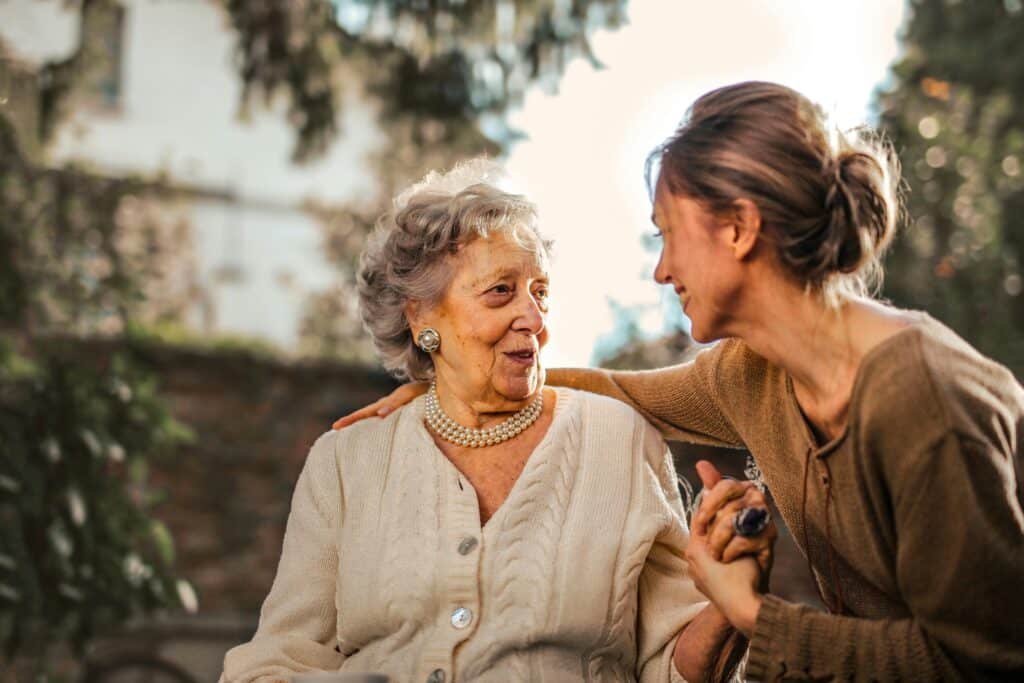I think a lot of families have certain songs, movies and the like that they refer to frequently. Like family punchlines. There are albums you listen to on long car trips, and there are those meme quotes that just kind of make their way into your family life? Right? I’m not the only one who experiences this? (Say yes.) Good.
Okay, so in my family growing up one of the sources of meme-quotes was a comedy album from the 1970s called “The Two-Thousand Thirteen Year-Old Man,” starring Jewish comedy legends Carl Reiner and Mel Brooks. It was a sequel—thirteen years later—to their original act, The Two-Thousand Year-Old Man. (Yes, for some reason we listened to the sequel more than the original.)
If you don’t know these albums, you should. If you’re Jewish, they’re part of your heritage (half of the schtick is just listening to Mel Brooks do his best impression of elders who spoke English with a Yiddish inflection). Whether or not you’re Jewish, they’re hilarious.
At one point towards the end, though, there’s a serious moment. The old man reflects that in his youth, he poked fun at his own parents. But then he starts talking about his own children, and here’s what he says.
My Dad loved to quote this line to us (in the Yiddish accent, of course). And the thing is, as I’ve gotten older, I’ve found that it’s true. “We mock the thing we are to be.” Mel Brooks, the Oracle.

This is the ninth episode in our miniseries on ethical mitzvot, and today’s topic is honoring elders. I think this is such an important mitzvah. Why? Because we live in a world that prizes youth more than anything. Our consumer culture peddles us pills and skill creams and hair products and diet fads and exercise regimens that are all designed to keep us from, God forbid, becoming old. We value things that are new, and we throw out things that are old. We want the upgrade, the latest edition. As soon as there’s a new version of whatever it is—the phone, the car, the shoes, whatever—whatever we have is old and out of date.
All of that is by design of course. We’re conditioned by advertisers to devalue the old stuff so we’ll buy new stuff all the time. And that attitude toward stuff winds up creeping into the way we treat people: We want the singer or the actor or the sports phenom who’s new and hot, not old and washed up. Our culture values the latest and greatest, and it tends to cast aside elders. I think on some level we all know that, and we’re all kind of afraid of it, and that’s why we buy the skin cream.
The Torah has a different view. Mipnei seivah takum, you should rise before a wise elder, v’hadarta p’nei zaken, and you shall honor the aged. So says the Book of Leviticus. Already in ancient times, it seems, the Torah recognized this human inclination to devalue the elderly, to say, “Look at the old man bent over and spitting.” And the Torah tells us not to. Instead, we should recognize the responsibility and the opportunity in our interactions with elders: We have a responsibility to ensure that they, like every person, is able to be recognized as an image of the Divine. And we have an opportunity not only to learn from their wisdom, but to condition ourselves to fully see and value them—just as we fully see and value all human beings.
I think this is probably harder than it sounds. When we encounter elderly people, on some level we are probably also confronting our own mortality. Being around elders is a reminder that, yes, we’re all going to die at some point. None of us gets out this thing alive. You don’t have to be Freud to recognize that, somewhere inside us, even unconsciously, that’s going to have an impact.
But what an opportunity for practicing mindfulness—for noticing the feelings arising, and then choosing a wise and compassionate response.
So here’s a practice for this week.
Make an intention that, at least once a day, you’ll pause to really notice and value an elder. It could be at the grocery store or on the street. It could be in a phone call or a visit with a parent or grandparent. It could be volunteering at a senior center or assisted living facility. Whatever it is, just make that intention for this week: To notice, to see, to behold.
Try to notice what, if anything, arises for you internally that leads you to resist interacting with an elder. Notice if there’s some fear, or some conditioning. Don’t judge yourself for it—that really doesn’t do any good, and you didn’t choose to feel this way. But just notice it.
And then, see if you can set down the sensation that’s generating that resistance, and try to step into the opportunity of this mitzvah: To honor our elders, to learn from their wisdom, and support them at this stage in their journey—with dignity and respect.
Try it out, and let me know how it goes.
Blessings for the journey. Know that I’m on it with you.
